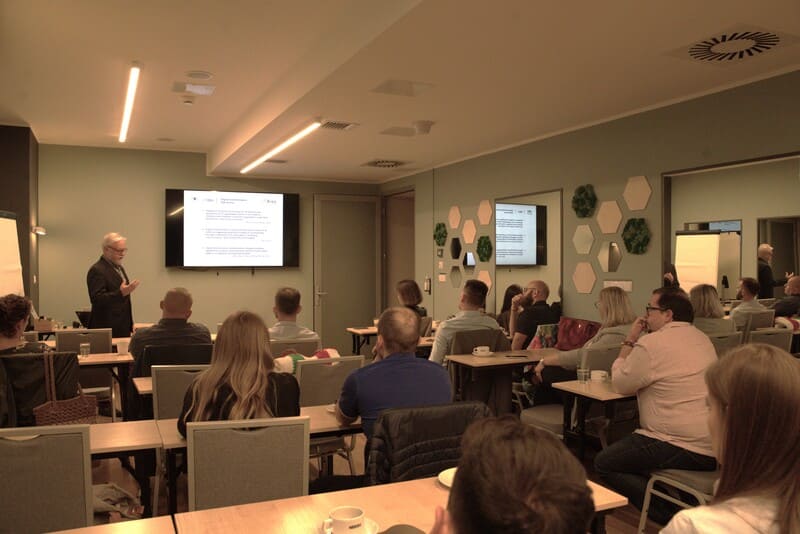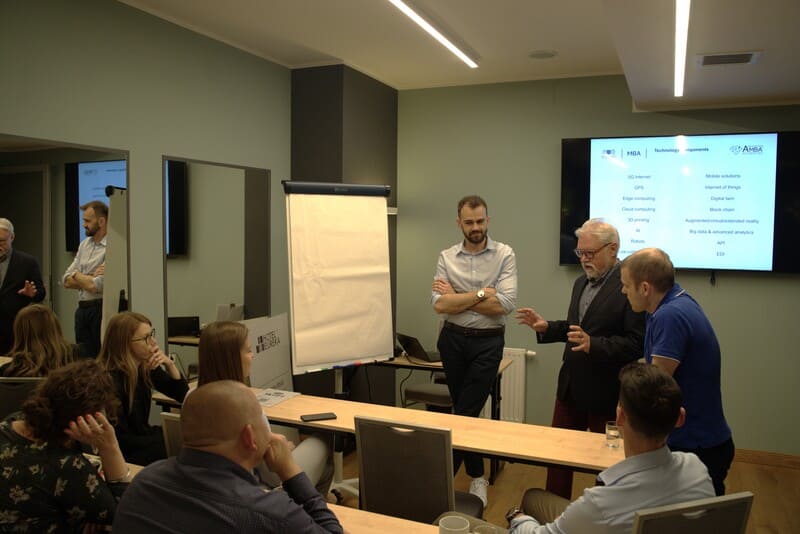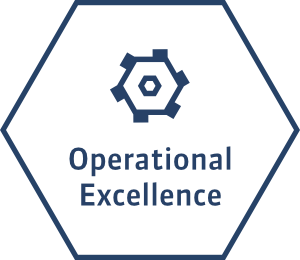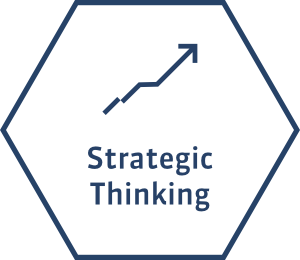9.05.2024 – MBA Creative Evening “Navigating digital horizons: sailing into transformation.”
Last Thursday, we had the opportunity to attend the MBA Creative Evening entitled “Navigating digital horizons: sailing into transformation.” Workshop leader Dariusz Mazurek summarized the journey that organizations and individuals must take in the face of rapid technological advances.
We worked in groups to confront the topic of digitalization from two perspectives – technology providers and companies that want to introduce digital resolutions. The workshops were about technology, but our conclusions concerned the social aspects of digitization, the labour market, trust and cultural differences.
Let’s dive deeper into the topic
Navigation: implies the need for strategic direction and skilful management. Companies and individuals use data analytics, strategic planning and digital tools to navigate the complex digital environment.
Digital Horizons: represents the ever-expanding possibilities and advancements in technology. This includes innovations in artificial intelligence, cloud computing, blockchain, Internet of Things (IoT), and more.
Sailing: symbolizes the proactive approach required to harness the power of digital technologies. Sailing is not passive; it demands active participation, continuous learning, and adaptation to the winds of change.
Transformation: indicates profound change, often leading to a redefined business model, operational process, or user experience.
Understanding Digital Transformation
Digital transformation involves the integration of digital technologies into all areas of a business, fundamentally changing how organizations operate and deliver value to customers. It is a holistic approach that encompasses various elements, including:
Technological Innovation: Adopting cutting-edge technologies such as artificial intelligence (AI), machine learning (ML), blockchain, and the Internet of Things (IoT).
Cultural Change: Fostering a digital-first mindset among employees, encouraging innovation, and promoting continuous learning.
Operational Efficiency: Streamlining processes through automation, improving data management, and leveraging analytics for better decision-making.
Customer Experience: Enhancing customer interactions and satisfaction through personalized services and digital engagement channels.
Challenges in Digital Transformation
Despite its benefits, digital transformation poses several challenges:
Resistance to Change: Employees may be reluctant to adopt new technologies or alter established workflows.
Legacy Systems: Outdated IT infrastructure can hinder the integration of new digital solutions.
Data Security: Ensuring the protection of sensitive information in an increasingly digital landscape is crucial.
Skill Gaps: A need for more digital talent can impede the implementation of advanced technologies.
Cost: The financial investment required for digital transformation can be substantial, posing a barrier for some organizations.
Digital transformation is a continuous and dynamic process that requires a strategic approach, robust leadership, and a culture of innovation. By navigating the digital horizons with a clear vision and adaptive strategies, organizations can sail into a future of enhanced operational efficiency, improved customer experiences, and sustained competitive advantage. Embracing the transformative power of digital technologies is not just a choice but a pathway to thriving in the digital age.
We would like to thank all students and alumni for participating in the Creative Evening, and Dariusz Mazurek for introducing us to this important topic.























